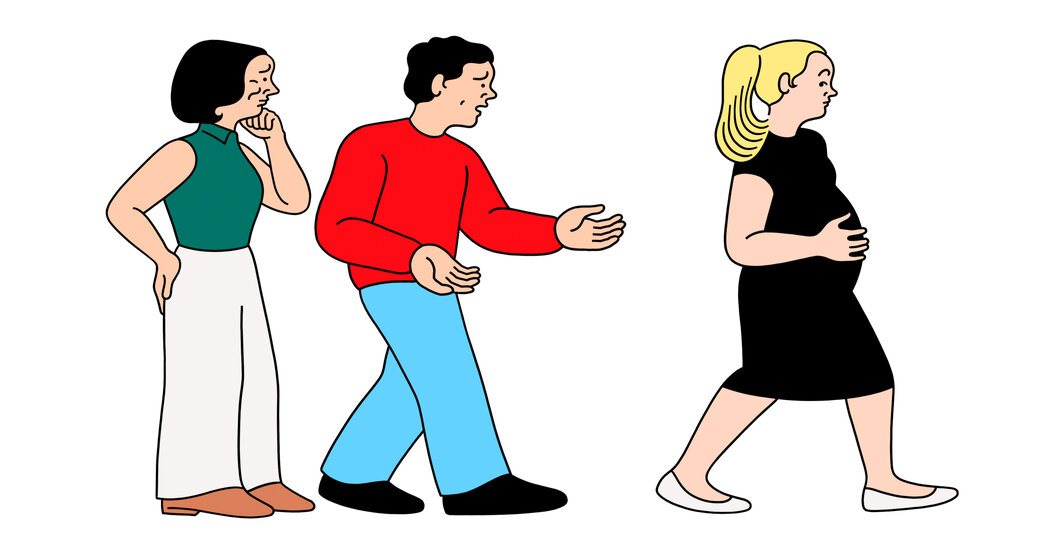My Son’s Ex-Girlfriend Wants to Keep Her Pregnancy. Is That Unfair to Him?

I’ve always supported a woman’s right to choose, not least because legal access to abortion once saved me from an untenable situation. I also believe that if a woman chooses to abort, her wish should supersede any opposition to it by the father. The physical, practical and emotional effects on a woman obliged to carry a child to term (and to care for it afterward) are, in my view, far more significant than they are for the father.
But what about the reverse? What about a case in which the father (in this case, my son) is adamantly opposed to having a child, but the woman (his ex-girlfriend) wants to keep the pregnancy? While it’s not relevant to the moral question, the pregnancy is shockingly unexpected given a medical issue of the father’s. And the couple’s relationship has almost no chance of success, even without a pregnancy. Given that the woman has neither a willing partner nor a job and is already responsible for a child from a previous relationship, her decision to continue with the pregnancy is viewed by most in her circle as reckless and certain to risk her already precarious mental health. Here, her right to choose to carry the child will have a profound impact on three (soon to be four) people and is likely to be very difficult for all.
Is it right to force someone to be a parent, even if in name only? Many people, me included, would say no if that person is a woman. Recent events have shown how fraught this issue is. And yet a man who does not wish to be, has never wanted to be and was told that his chances of ever being a parent were nil can find himself in a situation where his opposition carries no weight. While it’s evident that he will have financial obligations, what might his moral responsibility be? — Name Withheld
From the Ethicist:
A majority of Americans believe that when people learn they’re pregnant, they should have the right to choose whether to carry the fetus to term. Many philosophers would say that this right is grounded in, among other things, the value of bodily autonomy. But it can be a mistake to do something we have the right to do. We have the right, say, to spew hateful messages on the web — nobody should be able to stop us — but we would fairly earn reproach for doing so. It can, in short, be wrong to exercise a right.
Would it be wrong for this woman — putting aside your son’s involvement, for the moment — to have a second child? I don’t know enough to say; she could have moral objections to abortion, which would naturally supersede other considerations, though I assume you would have said so were this the case. What I can well believe is that it would be unwise for her to do so.
What happens when we take the views of the biological father into account? Often, an unwilling biological father was aware of the possibility of having a baby and may have behaved recklessly, although both women and men can fall victim to birth-control sabotage, a form of what has been called “reproductive coercion.” Yet your son apparently thought he was infertile and acted responsibly given the medical advice he had received. (In light of his medical situation, he would, if this child is born, have reason to seek a paternity test.)
